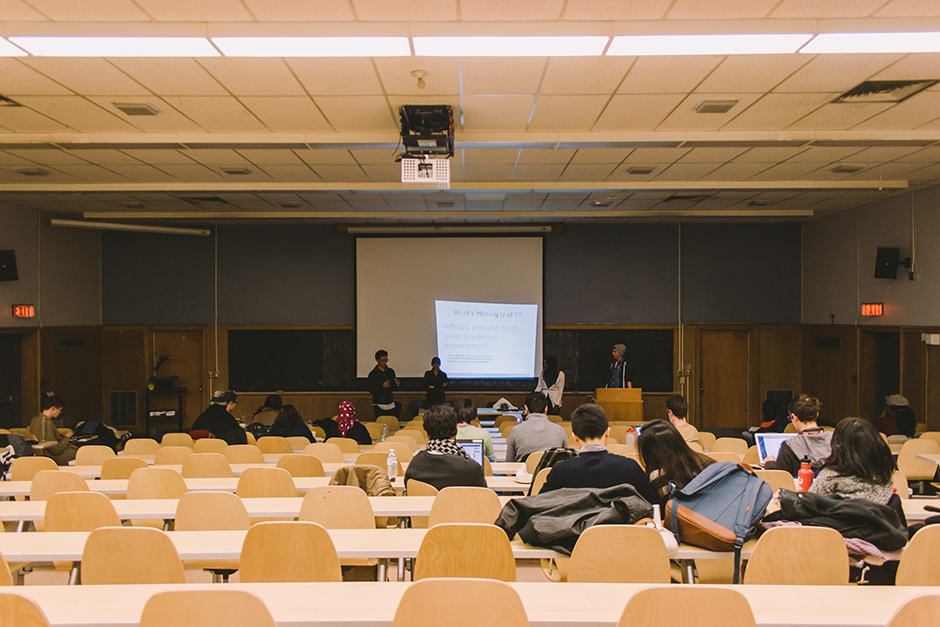At a university whose three campuses boast close to 50,000 full-time undergraduate students, it’s easy to get lost in the crowd at U of T. A sense of lacking a community, which can overwhelm a student, was one of the problems addressed at the University of Toronto Students’ Union’s (UTSU) townhall event held on Wednesday, January 28.
The gathering aimed to create a platform for students to share their experiences about U of T directly with UTSU executives in an informal setting. The feedback received was meant to help the UTSU resolve campus issues and improve student services. At the recent meeting, high profile issues discussed, were deficiencies in campus security, the importance of mental well-being, and reform in university elections. Lesser-known issues such as the shortage of water refill stations and the danger posed by traffic speeding on campus roads, were also addressed. While highlighting issues, students also suggested solutions in order to make the event productive.
Concerns were raised about academic issues, like ambiguity in the grading policies of teaching assistants, the perceived inaccessibility of professors, and the difficulties faced by students trying to use resources like writing centres and college registrars. Students complained that the vague feedback they received from their TAs prevented them from accurately assessing their own strengths and weaknesses.
These issues are compounded by the inaccessibility of professors who, due in part to large classes, are not always able to meet with every student in their class. There are, however, actions that students can take, such as attending office hours, in order to meet their professors. One good point that was raised was that it is almost impossible to make appointments with counsellors at the writing centre in time to meet course deadlines. Arguably, this is because these offices are understaffed relative to the size of the student population. Some students expressed that this is a problem which almost all student service offices within the university face, making them inaccessible to students.
Returning to the theme of community, it appears that commuter students suffer the most due to isolation. Students living in residence or on campus have opportunities to interact with peers at meal times and at other residence-run activities. Furthermore, many students seem to be unaware of the multitude of resources available to them. This can significantly limit their university experience. Commuters face academic difficulties because the university refuses to relax its deadlines, regardless of events like snow storms or transit failure. A student recalled sleeping in a college common room on the day of a snow storm because going home would likely have prevented him from submitting an assignment the next day. Events like these certainly make a strong case for the university to adopt a more flexible deadline policy.
Despite addressing many crucial issues, the meeting’s failure to draw crowds was a major setback. Approximately 40 students, including the executive and the Board of Directors, excluding the representative from Innis College, attended, significantly limiting the discussion. The executive did their best to stimulate an ultimately enlightening discussion, but on the whole, it appears that students are too busy to care.
Sonali Gill is a first-year student at St. Michael’s College.


